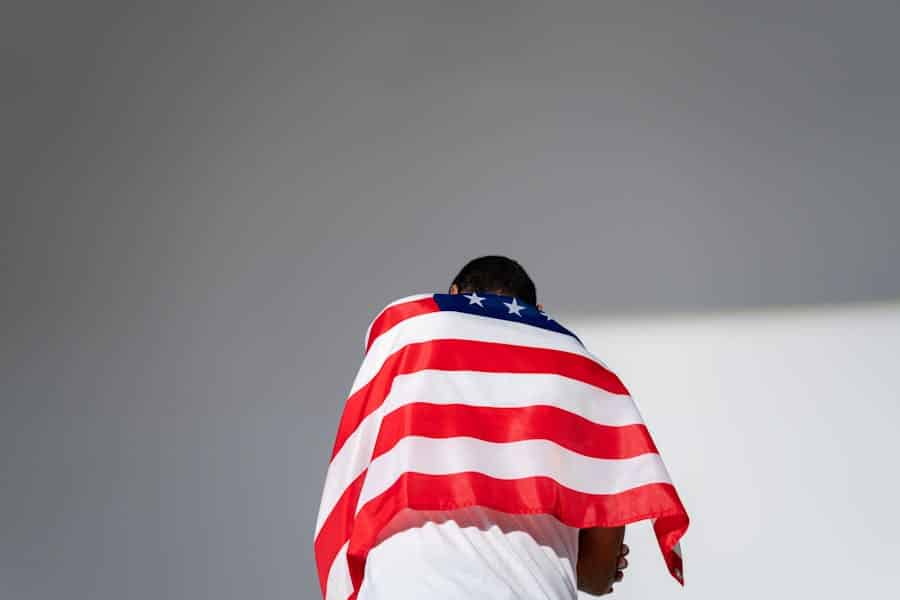
In today’s polarized society, the title of “the most hated man in America” often shifts based on current events, public opinion, and media coverage. This designation is not just about personal animosity but also reflects deeper societal issues and the impact of actions taken by these individuals. Understanding who holds this notorious title and why can offer insight into the collective psyche and the country’s ongoing cultural and political battles. In this article, we will delve into the lives and actions of those labeled as such, examining the reasons behind their infamy, the consequences of their actions, and the broader implications for society.
Who is the most hated man in America?
The title of “the most hated man in America” is often debated and can vary. It is commonly attributed to figures who have been involved in significant scandals or controversial decisions that have sparked widespread public outrage. These individuals are typically characterized by their actions that have deeply polarized or angered a large segment of the population.
The Evolution Of Infamy
Hate is a powerful emotion that can shape public perception and discourse. It is often directed at individuals whose actions or beliefs contradict societal norms or values. In the context of “the most hated man in America,” this designation reflects collective outrage and disapproval.
Throughout history, many figures have been labeled as the most hated man in America. During the early 20th century, figures like Al Capone, notorious for criminal activities, were widely despised. In more recent times, individuals such as Bernie Madoff, responsible for one of the largest financial frauds in history, have held this title.
The media plays a crucial role in shaping public opinion. The media can elevate an individual’s actions to national infamy through extensive coverage, selective reporting, and sometimes sensationalism. This is evident in cases like Martin Shkreli’s, whose price-gouging of life-saving drugs was met with widespread condemnation.
Politicians often find themselves at the center of public ire due to their policies and decisions. Figures like Richard Nixon, during the Watergate scandal, and more recently, Donald Trump, have been subjects of intense public scrutiny and division, earning them the dubious title at different times.
In the digital age, social media amplifies public sentiment. Platforms like Twitter and Facebook allow for rapid dissemination of information and opinion, often escalating public outrage. This has been seen in the cases of individuals like George Zimmerman, whose actions and subsequent trial were hotly debated online.
The Most Hated Man In America
The title “the most hated man in America” is not given lightly. It often goes to individuals whose actions have sparked widespread public outrage, media frenzy, and significant societal debate. Below, we will explore in detail some of the prominent figures labeled as such and the reasons behind their notoriety.
Bernie Madoff
Infamy for Financial Fraud
Bernie Madoff is one of the most infamous figures in American history. He is known for orchestrating the largest Ponzi scheme ever, defrauding thousands of investors out of billions of dollars over decades. His arrest and subsequent trial revealed the depth of his deception, leading to immense public outrage. The betrayal felt by investors, many of whom lost their life savings, cemented Madoff’s place as one of the most hated men in America.
Martin Shkreli
Price-Gouging Scandal
Martin Shkreli, often called “Pharma Bro,” became widely despised after his company, Turing Pharmaceuticals, acquired the life-saving drug Daraprim and raised its price from $13.50 to $750 per pill overnight. The move was seen as a blatant example of corporate greed at the expense of patients’ lives. Shkreli’s unapologetic demeanor and smug attitude during congressional hearings further fueled public hatred, making him a symbol of the worst aspects of the pharmaceutical industry.
Harvey Weinstein
Sexual Misconduct and Abuse
Harvey Weinstein, a once-powerful Hollywood producer, became the face of the #MeToo movement after numerous women came forward with allegations of sexual harassment, assault, and rape. Weinstein’s predatory behavior, long protected by a culture of silence in Hollywood, was exposed, leading to his criminal conviction. The sheer number of accusations and the severity of his actions earned him widespread revulsion, making him one of the most hated figures in recent history.
Richard Nixon
Watergate Scandal
Richard Nixon, the 37th President of the United States, became synonymous with political corruption after the Watergate scandal. The break-in at the Democratic National Committee headquarters and the subsequent cover-up led to Nixon’s resignation in 1974. The scandal eroded public trust in government and showcased the extent of political corruption, making Nixon one of the most reviled figures in American politics.
George Zimmerman
Trayvon Martin Case
George Zimmerman, a neighborhood watch volunteer, became a highly controversial figure after the shooting death of Trayvon Martin, an unarmed African American teenager, in 2012. Zimmerman’s acquittal on charges of second-degree murder and manslaughter sparked national outrage and debates over racial profiling, self-defense laws, and justice. The case highlighted deep racial tensions in America and led to widespread condemnation of Zimmerman.
Donald Trump
Polarizing Presidency
Donald Trump, the 45th President of the United States, remains one of the most polarizing figures in modern American history. His presidency was marked by divisive rhetoric, controversial policies, and multiple scandals. Trump’s handling of various issues, including immigration, the COVID-19 pandemic, and racial justice protests, garnered both emotional support and intense hatred. His impeachment trials and the events surrounding the January 6th Capitol riot further solidified his contentious legacy.
What Makes Someone The Most Hated Man In America?
The title “the most hated man in America” is a notorious distinction often reserved for individuals whose actions have provoked widespread public outrage and condemnation. Several factors contribute to this infamy, including morally reprehensible behavior, significant societal impact, extensive media coverage, and the inability to achieve redemption. Here, we explore the key characteristics of someone earning this controversial title.
Actions that Shock the Conscience: Individuals who commit actions perceived as morally reprehensible or cause significant harm to others often find themselves labeled as the most hated. These actions may include large-scale financial fraud, violent crimes, or severe breaches of trust. For example, Bernie Madoff’s Ponzi scheme defrauded thousands of people, leading to immense financial and emotional suffering, which made him a prime candidate for this title.
Media Amplification: The media plays a crucial role in amplifying the public’s perception of hate. Extensive and sensational media coverage can turn an individual into a national pariah overnight. The constant exposure of their actions and often inflammatory commentary can solidify their negative reputation in the public consciousness. Martin Shkreli, for instance, became widely reviled after media outlets extensively covered his price-gouging scandal and smug demeanor during public appearances.
Public Perception: Public perception is shaped by cultural, social, and political contexts. What is considered unforgivable in one era or region may not be viewed similarly in another. For example, Richard Nixon’s involvement in the Watergate scandal was seen as a profound betrayal of public trust, leading to his resignation and lasting infamy. Public opinion is often swayed by collective values and the emotional impact of the individual’s actions.
Impact on Society: The societal impact of an individual’s actions is another critical factor. The public’s response is often severe when their deeds lead to widespread harm or highlight systemic issues. Harvey Weinstein’s sexual misconduct and abuse not only ruined numerous lives but also shed light on the pervasive issue of sexual harassment in Hollywood, sparking the #MeToo movement. The significant societal change brought about by his exposure contributed to the depth of public hatred toward him.
Polarizing Opinions and Actions: Some figures become the most hated due to their polarizing opinions or actions that deeply divide the public. Political figures, in particular, often find themselves in this position due to their policies and rhetoric. Donald Trump’s presidency was marked by divisive statements and controversial decisions, which garnered both emotional support and intense hatred. His polarizing nature made him a constant subject of debate and animosity.
Difficulty of Redemption: The path to redemption is often fraught with challenges. While some individuals attempt to rehabilitate their image through public apologies, charitable acts, or reformed behavior, public forgiveness is not easily attained. The psychological and social impacts of being widely hated can be severe, leading to isolation and lasting damage to one’s reputation. Michael Vick, who was convicted of dog fighting, worked extensively with animal rights organizations post-conviction to rebuild his image, demonstrating that while some degree of redemption is possible, complete forgiveness is rare.
Conclusion
The title of “the most hated man in America” is not bestowed lightly. It reflects a complex interplay of actions, media coverage, and public perception. Understanding the reasons behind this infamy provides insight into societal values and the mechanisms of public outrage. While some individuals may eventually find a path to redemption, others remain entrenched in their notoriety, serving as cautionary tales of the consequences of crossing societal boundaries.
FAQs
Why do people hate certain public figures so much?
People often hate public figures because they perceive their actions as harmful, immoral, or hypocritical. Media coverage and public discourse also play significant roles in shaping these perceptions.
Can someone recover from being the most hated man in America?
Recovery is possible but challenging. It often involves sincere public apologies, changes in behavior, and sometimes years of effort to rebuild a positive image.
How does the media influence public hatred?
The media can amplify public sentiment through extensive coverage, selective reporting, and sometimes sensationalism. This can escalate public outrage and solidify an individual’s negative reputation.





